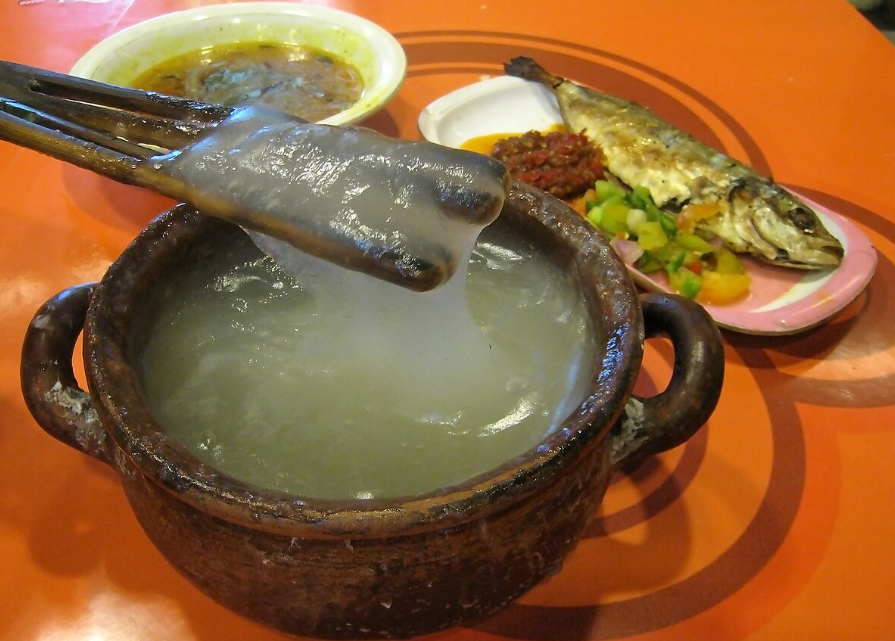PapuaAround.com – Papeda is a traditional dish made from sago, characterized by its thick and sticky texture similar to porridge. This food is an integral part of the lives of people in Papua, Maluku, and some regions in Sulawesi. More than just a culinary delight, papeda holds deep cultural and spiritual significance for the local communities.
Historically, papeda has been a staple food for indigenous tribes in Papua, such as the Sentani and Arso tribes in Jayapura and the tribes in Manokwari, West Papua. “Papeda is a symbol of life for us,” said Yohanis, a tribal elder in Jayapura. “The sago that forms the basis of papeda represents the strength and resilience of the Papuan people.”
Papeda is not just an everyday food but also plays an important role in various traditional ceremonies as traditional dish. One such ceremony is Watani Kame, which marks the end of someone’s life cycle. In this ceremony, papeda is distributed to those who have helped with the process. “Papeda is part of our ritual of respect,” explained Marius, a community leader from Manokwari. “It is our way of expressing gratitude and honor to those who have supported us.”
In South Sorong, West Papua, papeda is also an important offering in the ceremony of a first child’s birth. During this event, papeda is typically served with pork. Additionally, papeda is often consumed by women in Inanwatan to relieve pain while getting tattoos. “Papeda has the power to calm and provide comfort,” said Maria, a woman from Inanwatan.
Read also: Delving Deeper into West Papua’s Flora and Fauna Icons: The Matoa and Red Bird of Paradise
In Maluku, papeda also holds significant importance in the life cycle of the Nuaulu tribe on Seram Island. There, papeda, known as sonar monne, is served during the ritual celebration of a girl’s puberty. However, the Nuaulu and Huaulu tribes prohibit women from cooking papeda during their menstrual periods, considering it taboo. “This is part of our belief system,” said Alex, a tribal elder in Seram. “We believe there are certain rules to follow to maintain balance and harmony.”
The cultural richness embedded in papeda makes it more than just a food item. It reflects the local wisdom and values held dear by the people of Papua and Maluku. Nonetheless, papeda faces challenges in the modern era. Changes in lifestyle and the influx of instant foods are beginning to overshadow papeda’s place in society.
“It is important for the younger generation to understand and preserve this tradition,” said Professor Benny, an anthropologist from Cenderawasih University. “Papeda is not just about food, but also about identity and cultural heritage that must be safeguarded.”
In recent years, efforts to preserve papeda have intensified. Culinary festivals, workshops, and educational programs in schools about the importance of traditional foods like papeda have been promoted. “We want to ensure that papeda remains part of the daily life of the people of Papua and Maluku,” said Miriam, a cultural activist.
Despite the challenges, papeda maintains a special place in the hearts of the people of Papua and Maluku. Its existence not only serves as a reminder of history and tradition but also stands as a symbol of resilience and identity. “Papeda is our heritage,” emphasized Yohanis. “It is part of who we are and how we see the world.”
With all its uniqueness, papeda as traditional dish continues to teach us about the importance of appreciating and preserving cultural heritage. This dish not only satisfies the stomach but also enriches the soul with invaluable local wisdom. It is a symbol of Indonesia’s diversity and cultural richness that deserves to be cherished and protected together.
Source: RRI.

